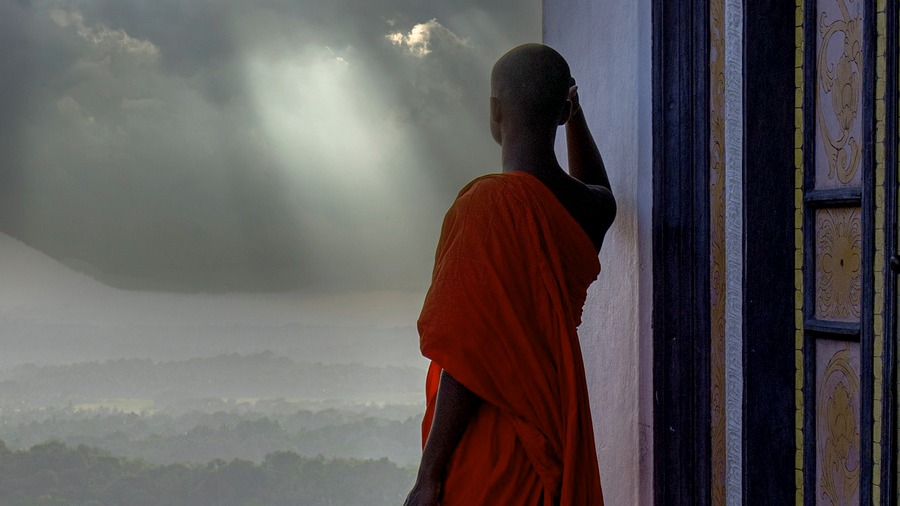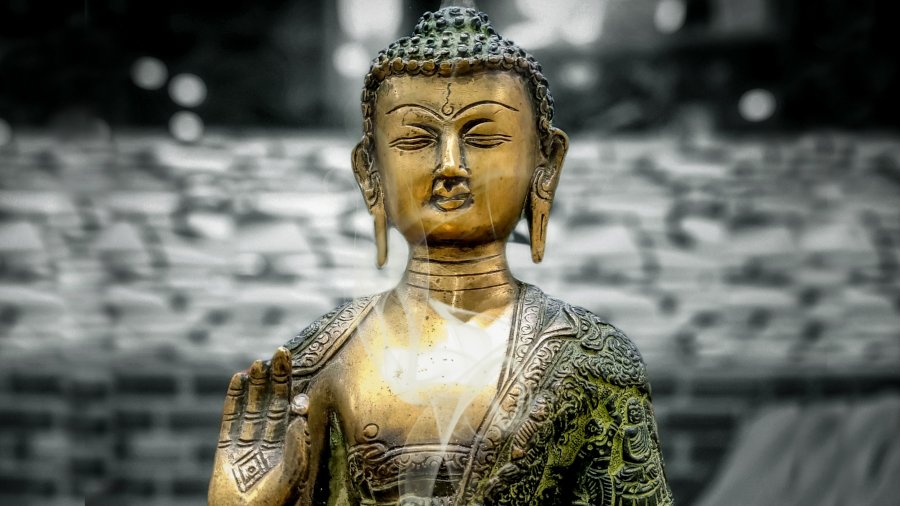[Note: “Discerning” is Ajahn Thianssaro’s usual translation for pañña.]
“Live with a protector, monks, and not without a protector. He suffers, one who lives without a protector. And these ten are qualities creating a protector. Which ten?
“There is the case where a monk is virtuous. He dwells restrained in accordance with the Pāṭimokkha, consummate in his behavior & sphere of activity. He trains himself, having undertaken the training rules, seeing danger in the slightest faults. And the fact that he is virtuous… seeing danger in the slightest faults is a quality creating a protector.
“Then again, the monk has heard much, has retained what he has heard, has stored what he has heard. Whatever teachings are admirable in the beginning, admirable in the middle, admirable in the end, that—in their meaning and expression—proclaim the holy life that is entirely perfect, surpassingly pure: Those he has listened to often, retained, discussed, accumulated, examined with his mind, & well-penetrated in terms of his views. And the fact that he has heard much… well-penetrated in terms of his views is a quality creating a protector.
“Then again, the monk has admirable friends, admirable comrades, admirable companions. And the fact that he has admirable friends, admirable comrades, admirable companions is a quality creating a protector.
“Then again, the monk is easy to speak to, endowed with qualities that make him easy to speak to, patient, respectful to instruction. And the fact that he is easy to speak to… respectful to instruction is a quality creating a protector.
“Then again, the monk is adept at the various affairs involving his companions in the holy life; is vigorous, quick-witted in the techniques involved in them, is up to doing them or arranging to get them done. And the fact that he is adept at… doing them or arranging to get them done is a quality creating a protector.
“Then again, the monk is one who desires the Dhamma, endearing in his conversation, greatly rejoicing in the higher Dhamma & higher Vinaya. And the fact that he is one who desires the Dhamma, endearing in his conversation, greatly rejoicing in the higher Dhamma & higher Vinaya is a quality creating a protector.
“Then again, the monk keeps his persistence aroused for abandoning unskillful qualities and for taking on skillful qualities. He is steadfast, solid in his effort, not shirking his duties with regard to skillful qualities. And the fact that he keeps his persistence aroused… not shirking his duties with regard to skillful qualities is a quality creating a protector.
“Then again, the monk is content with any old robe cloth at all, any old alms food, any old lodging, any old medicinal requisites for curing sickness at all. And the fact that he is content with any old robe cloth at all, any old alms food, any old lodging, any old medicinal requisites for curing sickness at all is a quality creating a protector.
“Then again, the monk is mindful, endowed with excellent proficiency in mindfulness, remembering & recollecting what was done and said a long time ago. And the fact that he is mindful, endowed with excellent proficiency in mindfulness, remembering & recollecting what was done and said a long time ago is a quality creating a protector.
“Then again, the monk is discerning, endowed with discernment of arising & passing away—noble, penetrating, leading to the right ending of stress. And the fact that the monk is discerning, endowed with discernment of arising & passing away—noble, penetrating, leading to the right ending of stress is a quality creating a protector.
“Live with a protector, monks, and not without a protector. He suffers, one who lives without a protector. These are the ten qualities creating a protector.”
Read this translation of Aṅguttara Nikāya 10.17 Nātha Sutta. Protectors (1) by Bhikkhu Ṭhanissaro on DhammaTalks.org. Or read a different translation on SuttaCentral.net or DhammaTalks.org. Or listen on SC-Voice.net. Or explore the Pali on DigitalPaliReader.online.
Or read a translation in Deutsch, Français, Bengali, Indonesian, Italiano, မြန်မာဘာသာ, Português, ру́сский язы́к, සිංහල, ไทย, Tiếng Việt, or 汉语. Learn how to find your language.






